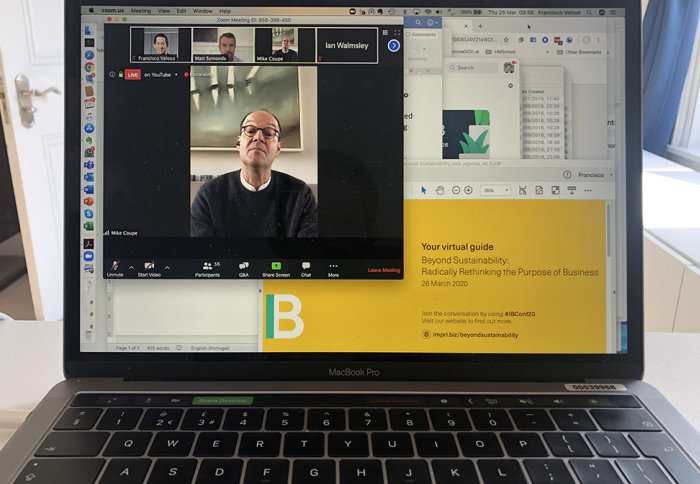Business leaders seek to hire new talent despite COVID-19 concerns

A poll by Imperial College Business School shows that companies intend to recruit new staff despite the uncertainty caused by the coronavirus.
According to the poll, which was conducted at the Business School’s annual conference, 90 percent of attendees stated their firms would be seeking to hire new talent over the coming year. Almost half of those surveyed (48 percent) said that technology was the most important skill they would be seeking among new recruits, followed by customer service (24 percent) and analytical skills (19 percent).
However, the poll revealed the concerns facing businesses over the economic fallout, with four out of 10 respondents predicting that the COVID-19 pandemic would see UK GDP contract by over 10 percent.
In light of the unprecedented economic uncertainty, 86 percent believed the Brexit deadline should be extended beyond 31 December 2020. Strategic thinking and clear communication were also identified as the key leadership skills needed to navigate the current crisis.
The poll was open to 70 c-suite executives joining the conference remotely, with 29 people taking part. The poll was conducted at the ‘Beyond Sustainability: Radically Rethinking the Purpose of Business’ conference, hosted by the Business School, which was held online for the first time. The conference, attended by industry leaders and Imperial academics, aimed to address whether the current ways of doing business are compatible with a sustainable future.
The video of the conference is available to view on the link below.
Moving towards a sustainable future
The guest keynote speaker at the conference was Sainsbury’s CEO Mike Coupe who outlined the retailer’s ambition to become a net-zero company by 2040, for which £1 billion has been earmarked.
Admitting that only around 40 percent of necessary technical solutions were currently in place, Mr Coupe emphasised the importance of collaboration. “We need support from institutions like Imperial, where base technologies are not necessarily in place. We’re big advocates of co-investing into the development of these.” Once in place and scalable, he added, such technologies would have a wider societal benefit, he added, well beyond the borders of the UK.
Coupe also highlighted the financial benefits of environmental, social and governance (ESG) investment. “As well as doing the right thing, there is an edge to this, a hard commercial benefit. We anticipate a cash payback in four or five years. It therefore fulfils many of the shareholders’ criteria about how to invest our cash.”
Climate goals and COVID-19
Another highlight was a panel curated by Imperial’s Professor David Gann, which brought together representatives from BlackRock, the global asset management firm, and the charity Conservation International with Imperial academics.
"Sustainability remains a key challenge for businesses and I see the new Leonardo Centre playing an important role in tackling this issue.” Professor Francisco Veloso Dean of Imperial College Business School
Professor Martin Siegert, Co-Director of the Grantham Institute – Climate and Environment expressed concern that the financial cost of COVID-19 may ultimately see investment diverted from climate goals. He warned that on the current trajectory, the level of CO2 in the atmosphere will reach 1,000 ppm by the end of century – a 50-million-year high. “We cannot underestimate the impact that business, humans – all of us – are having on this planet. Climate change remains the issue of our generation,” he concluded.
Helping businesses become more sustainable
Professor Maurizio Zollo, Scientific Director of the Business School’s new Leonardo Centre outlined the centre’s mission to help engender a “new species of business” for which environmental health and societal wellbeing are on a par with economic value. The participation of industry is key to achieving these goals, Professor Zollo stressed: “Fundamentally, this is a challenge that can only be tackled by a broad collaborative effort, by establishing a laboratory where innovations are not only generated, but also tested in the field.”
Reflecting on the day, Professor Francisco Veloso, Dean of Imperial College Business School, said: “I am delighted that, despite the current uncertainty presented by COVID-19, we were able to hold our annual conference online for the first time, welcoming high-profile guests to discuss some of the biggest challenges we face today. Sustainability remains a key societal challenge and I see the new Leonardo Centre playing an important role in working collaboratively with businesses around the world to tackle this issue."
Article text (excluding photos or graphics) © Imperial College London.
Photos and graphics subject to third party copyright used with permission or © Imperial College London.
Reporter
Laura Singleton
Communications Division
